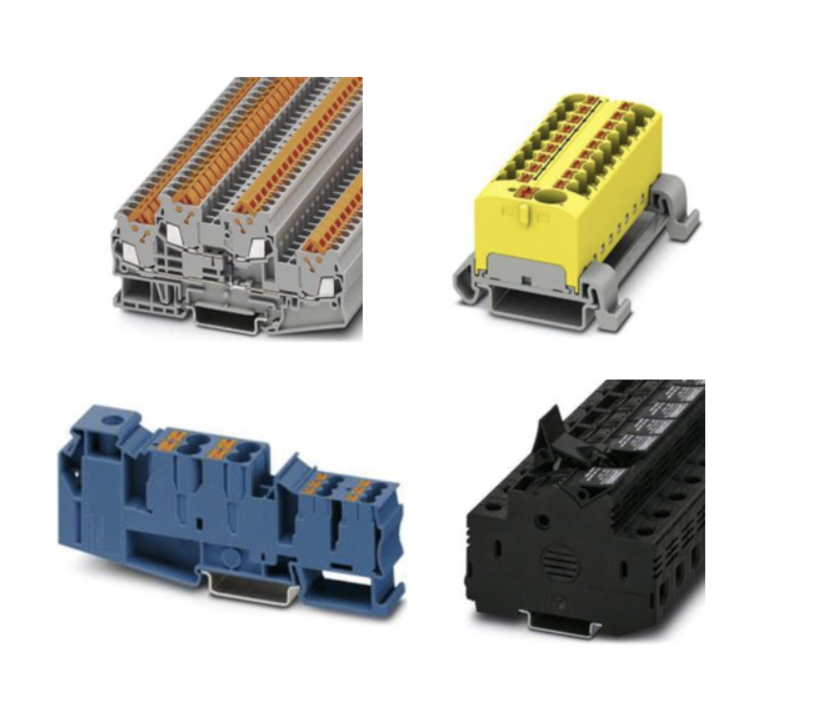Specialty Terminal Blocks

Specialty terminal blocks address unique needs that standard terminal blocks cannot manage. When a job calls for a terminal block to do something specific, these terminal blocks are the answer. They also handle complex wiring layouts organized in a manner that is efficient for control panels and equipment enclosures.
Specialty terminal blocks differ from traditional terminal strips or barrier strips in one major regard: Their built-in safety features enable maintenance personnel to isolate electrical circuits with minimal risk of electrical shock. That’s a vital advantage in all kinds of commercial and industrial applications. Not only do specialty terminal blocks safeguard personnel, but they also simplify troubleshooting. Dismantling a system to find a bad connection can take hours—often without the reason for the failure being obvious. Terminal blocks can also be used for power distribution, with the added benefit that many visual indicators of circuit status can be accommodated.
More Information about Specialty Terminal Blocks
You can also tailor specialty terminal blocks to be modular. This makes them compatible with DIN rail mounting systems, enabling a flexible arrangement within control cabinets. Though modular terminal blocks and PCB terminal blocks serve specific structural or board-level needs, specialty variants focus on functional enhancements. Whether used to manage space efficiently or multiple wire connections, or to provide integrated protection components, specialty terminal blocks help create robust, serviceable, electrical systems that satisfy intricate design and operational demands.
FAQs
Are terminal strips connected by plug in or are tools required?
Terminal strips are typically connected using tools, such as screwdrivers or pliers, to secure the wires in place, although some types may offer plug-in connections for easier and tool-free assembly.
Do terminal block connectors have screw terminals that accommodate different wire sizes for multiple devices?
Yes, terminal block connectors with screw terminals are designed to accommodate different wire sizes, allowing secure connections for multiple devices within the same electrical system.
Terminal Block Basics
Single Level Pass Through Terminal Blocks are used to connect two wires together with a common junction point. This is helpful when a component needs to be disconnected or isolated within a circuit. These are the most common types of terminal blocks in industrial applications.
Ground Terminal Blocks function almost exactly like most pass through terminal blocks with one exception: they are grounded. These terminal blocks have a metal connection from where the wire is terminated, all the way to the bottom of the block where it will clamp into the panel. This allows for an electrical circuit to be grounded without running a wire to the main ground connection on a breaker or surge protector.
Fused Terminal Blocks function almost exactly like most pass through terminal blocks with one exception: the presence of a fuse. This fuse provides protection for components from too much voltage or current.
Multilevel Terminal Blocks are used to connect two wires together with a common junction point, just like single pass though terminal blocks, but with the advantage of making two electrical connections in the same block. These blocks also incorporate fuses and can be grounded.
Disconnect Terminal Blocks are similar to fused blocks, however the disconnect stops the flow of electricity by lifting a lever on the terminal block. Unlike fuse blocks, they are a more permanent solution, but will not provide any protection in the event of a power surge.

